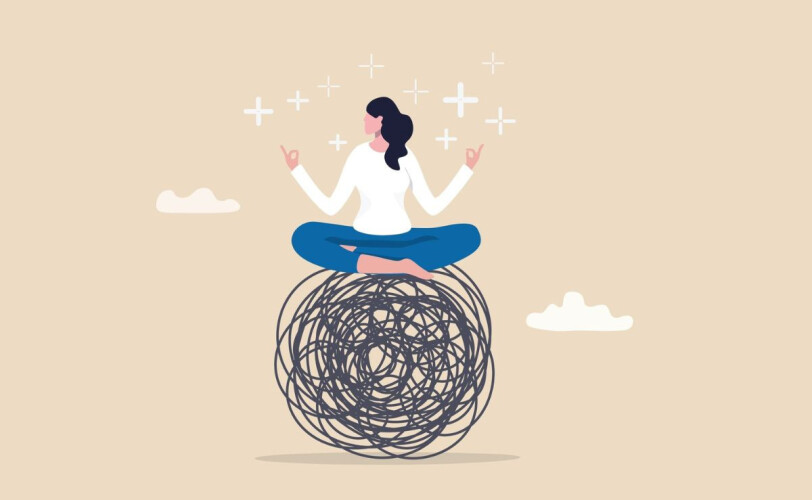In a world that often feels overwhelming and chaotic, the importance of mental health has never been more evident. One often overlooked aspect of maintaining mental well-being is the role of hobbies. From painting to hiking, hobbies offer a much-needed escape from the stresses of daily life and provide a sense of purpose and fulfillment. In this article, we will explore the impact of hobbies on mental health and the significant benefits they can bring to our overall well-being.

Exploring the Benefits of Hobbies on Mental Health
Hobbies have always played a significant role in promoting mental well-being and overall happiness. Engaging in activities that we enjoy and are passionate about can have a positive impact on our mental health, helping to reduce stress, anxiety, and depression. Whether it’s painting, gardening, playing a musical instrument, or reading, hobbies offer a much-needed escape from the hustle and bustle of daily life.
One of the key benefits of hobbies on mental health is their ability to provide a sense of purpose and fulfillment. When we dedicate time to our hobbies, we are engaging in activities that bring us joy and satisfaction, boosting our self-esteem and confidence. Hobbies also help to improve our cognitive function and concentration, as they require focus and attention to detail.
Moreover, hobbies can serve as a form of meditation, allowing us to relax and unwind after a long day. The repetitive nature of certain hobbies, such as knitting or puzzle-solving, can have a calming effect on the mind, promoting mindfulness and inner peace. By incorporating hobbies into our daily routine, we can cultivate a more balanced and healthy lifestyle, enhancing our overall well-being.
The Connection Between Hobbies and Stress Relief
Many people underestimate the power of hobbies when it comes to managing stress and maintaining good mental health. Engaging in activities that you enjoy can have a positive impact on your overall well-being. Whether it’s gardening, painting, playing an instrument, or hiking, hobbies provide a much-needed break from the stresses of everyday life.
One of the key ways in which hobbies help alleviate stress is by allowing individuals to focus their attention on something other than their worries. When you are immersed in a hobby that you love, you are able to escape the negative thoughts that may be weighing you down. This mental break can be incredibly refreshing and rejuvenating.
Furthermore, hobbies can also promote mindfulness and relaxation. Activities like yoga, meditation, or knitting require a certain level of focus and attention to detail, which can help calm the mind and reduce feelings of anxiety. By engaging in hobbies that encourage mindfulness, individuals can learn to be present in the moment and let go of their stressors.
Overall, it’s important to prioritize activities that bring you joy and relaxation. Whether it’s spending time outdoors, practicing a creative craft, or participating in a sport, finding a hobby that resonates with you can have a profound impact on your mental health. So don’t underestimate the power of hobbies in helping you manage stress and improve your overall well-being.
Enhancing Emotional Well-being Through Leisure Activities
Hobbies play a crucial role in maintaining and improving our mental health. Engaging in leisure activities not only provides a break from the stressors of daily life but also offers an opportunity to focus on something enjoyable and fulfilling. This can help to reduce feelings of anxiety and depression, leading to an overall improvement in emotional well-being.
When we participate in activities we are passionate about, such as painting, gardening, or hiking, our brains release feel-good chemicals like dopamine and endorphins. These chemicals are responsible for boosting our mood and creating a sense of happiness and relaxation. By regularly incorporating hobbies into our routine, we can create a positive and sustainable impact on our mental health.
Moreover, hobbies can also help to improve our self-esteem and confidence. When we excel at a particular activity, whether it be cooking, photography, or woodworking, we feel a sense of accomplishment and pride. This sense of achievement can translate into increased self-worth and a more positive self-image.
Overall, finding time for hobbies and leisure activities is essential for enhancing our emotional well-being. So, whether it’s practicing yoga, playing an instrument, or exploring new recipes, make sure to set aside time for activities that bring you joy and fulfillment.
Tips for Incorporating Hobbies into Your Mental Health Routine
Discovering the importance of incorporating hobbies into your mental health routine can have a profound impact on your overall well-being. Engaging in activities that you enjoy and are passionate about can provide a sense of purpose and fulfillment, helping to alleviate stress and improve your mood.
One tip for incorporating hobbies into your mental health routine is to prioritize self-care by setting aside dedicated time each day or week to engage in your favorite activities. Whether it’s painting, gardening, or playing a musical instrument, engaging in hobbies can help you relax and recharge.
Another tip is to get creative and explore new hobbies that spark your interest. Trying out different activities can introduce variety into your routine and help you discover new passions. Remember, the goal is not perfection but rather enjoyment and personal growth.
Lastly, don’t be afraid to seek support from friends, family, or mental health professionals to help you stay motivated and accountable in incorporating hobbies into your routine. Remember, taking care of your mental health is a journey, and finding joy in your hobbies can be a valuable part of that process.
In conclusion, the importance of hobbies in maintaining good mental health cannot be overstated. Engaging in activities that bring us joy, fulfillment, and a sense of accomplishment can have a profound impact on our overall well-being. So, whether it’s painting, gardening, hiking, or playing a musical instrument, don’t underestimate the power of your hobbies in nurturing your mental health. Remember, taking time for yourself and pursuing your passions is not selfish, but rather a crucial component of self-care. So, go ahead and indulge in your hobbies, for they are truly a gift to your mind, body, and soul.







